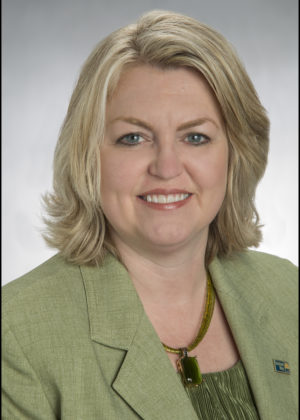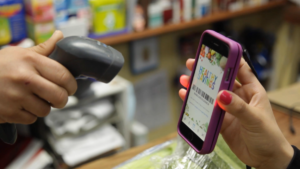United Way of Western CT debuts Prosperi-Key platform to aid lower-income households
In August, the United Way of Western Connecticut launched Prosperi-Key, a digital platform designed to assist struggling lower-income households who fall into the ALICE (Asset Limited, Income Constrained, Employed) demographic that are not eligible for government assistance programs but nonetheless struggle mightily to make ends meet.

According to the nonprofit, the ALICE demographic account for more than 40% of households in western Connecticut and include many essential workers who kept the pandemic-era economy working, such as grocery store clerks, child care workers, and elder care workers.
Last month, Prosperi-Key debuted the Healthy Savings program, which provides $10 of free fresh produce weekly to residents of the 15 Fairfield and Litchfield County towns served by United Way of Western Connecticut. According to Kim Morgan, CEO of the United Way of Western Connecticut, the program is the result of evolving considerations on how to address food insecurity.
“It started off as a 50% match with a cap at $10 per week,” said Morgan. “This past summer, we changed that to be a flat $10 per week to make it less of an out-of-pocket cost for the ALICE population and to increase the benefit. During the early months of the pandemic, between March and June of 2020, we doubled the benefit to $20 per week because we knew people were in such dire need of food.”
Morgan said the Healthy Savings program has already benefited 670 households and provided $124,000 in fresh produce since its introduction. She plans to expand it to 1,200 households within the next year, with local Stop & Shop and Walmart stores participating in the program.
“Healthy Savings came about because we didn’t want to keep driving people to food pantries,” Morgan said. “We didn’t feel like that was the most dignified way to get food ”” we wanted to find something in the grocery store.”
In addition to the food discounts through Healthy Savings, Prosperi-Key connects eligible residents with businesses and organizations offering housing assistance and counseling, career growth resources, child education services, programs designed for seniors and veterans, and consumer products and services ranging from internet connectivity to clothing for adults and children.

When presenting Prosperi-Key, Morgan wanted to avoid the appearance of offering handouts to those in need. Instead, she sought to involve local businesses in providing discounted merchandise and services while encouraging program users to feel like they were getting a good deal rather than charitable contributions.
“We felt like these families needed a Groupon-like experience,” she said. “And that we could build a business and nonprofit connection. We’ve got some local markets and diners who are supporting the community and giving special discounts, and that will grow over time as the United Way establishes relationships and the brand gets known.”
Morgan stated that Prosperi-Key is designed to make the income verification process easy and the sign-up environment user-friendly.
“It eliminates that challenge that ALICE households typically have in accessing services and support because they generally work during the day when these agencies are open to work with clients,” she said. “This puts the power back into the hands of the individuals who are seeking assistance ”” they can access it at night on the weekends and can apply for the assistance whenever it’s convenient for them and not have to take time off work to go from one agency for one type of support to a different agency for different kinds of support. It really streamlines the system and the process for this population.”
Morgan is planning to expand the Prosperi-Key platform to other United Way chapters across the country.
“We built this as a national platform and we’re rolling it out community by community,” she said. “We”™re in Buffalo, New York, and launching in the next two weeks Dayton, Ohio. We’re working with the local United Way’s because they are so connected in the communities with the business community and the nonprofits ”” we hope to be in 100 communities and have at least half a million members in the next three years.”